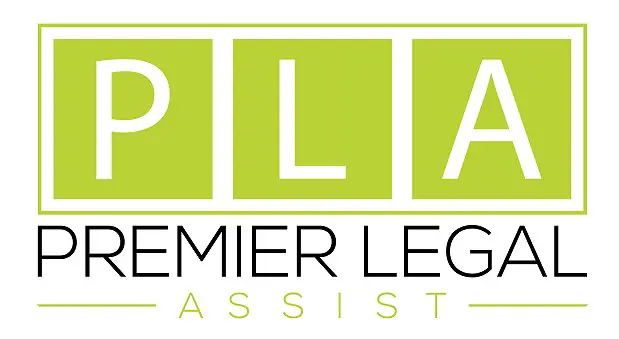New Legal Duties on Social Landlords Raise Questions About Whether Nottingham City Council Can Afford Essential Repairs
Awaab’s Law means councils must quickly rectify serious hazards, damp and mould.
From October 2025, social housing landlords, including councils, will be “forced to investigate and fix dangerous damp and mould in set time periods and repair all emergency hazards within 24 hours”.
The reforms will be known as Awaab’s Law, in memory of two-year-old Awaab Ishak, who died in December 2020 from a severe respiratory condition caused by prolonged exposure to damp and mould in his Rochdale home.
Awaab’s Law is contained in section 42 of the Social Housing (Regulation) Act 2023, UK legislation designed to improve the standards, safety and operation of social housing.
The Act establishes new legal obligations for landlords to address serious hazards, such as damp and mould, within strict timeframes. Additionally, emergency repairs must be completed within 24 hours.
Over the next two years, further ‘hazards’ will be included in the requirements, including ‘excess cold and excess heat; falls; structural collapse; fire, electrical and explosions; and hygiene hazards’.
Financial position at Nottingham City Council
Damp and mould are ongoing problems for many social housing landlords, with a shortage of suitable accommodation, overcrowding in homes, and a cost-of-living crisis that forces tenants to choose between heating their homes or feeding their families.
At a recent Place, Economy and Infrastructure Scrutiny Committee meeting, Nottingham City Council was asked if it had sufficient resources to combat damp in its properties.
The council has already enlisted the help of two additional contractors and successfully reduced the overall number of properties with damp problems from 1,736 (December 2024) to 957 (March 2025). While this is a positive improvement, the repairs came at a significant cost.
The council says it spent more than £2.4 million fixing damp and mould problems in its homes during the 2024-2025 financial year.
Planning for the future
At the Nottingham City Council meeting, Councillor Jay Hayes explained that additional expenses, such as those incurred if a family has to be moved out of their home whilst repairs are undertaken, come out of the Housing Revenue Account (HRA), a ring-fenced account that is separate from the council’s General Fund, used for managing and maintaining social housing.
Steve Edlin, Assistant Director of Asset Management, said the government had underestimated the cost of implementing the new legislative changes, but the council had been planning ahead.
It was reported that around 4500 of the council’s housing stock do not have cavity walls, making them more susceptible to condensation, damp and mould, so the council will install air ventilation devices to help remove damp air and introduce fresh, filtered air. They also intend to run a leak detector project in high-rise buildings.
Repair categories and legally binding timescales
Social housing repair timelines depend on the type and urgency of the repair. Emergency repairs, such as gas leaks and serious flooding, should be rectified within 24 hours.
Other repairs might be classed as Urgent, Routine or Major, and each has its own timescale for investigation and completion, ranging from days to weeks. Urgent repairs could include a partial loss of water supply or unsafe stairs. Routine repairs include faulty taps or broken window handles. Major repairs might include roof repairs, guttering, structural damage or bathroom renovations.
The changes outlined in the Social Housing (Regulation) Act 2023 will be phased in over the next couple of years:
- October 2025: all emergency repairs must be addressed within 24 hours; damp and mould must be addressed within ‘fixed timescales’ yet to be specified
- 2026: Awaab’s Law is widened to include other hazards such as excess cold and heat, falls, structural collapse, fire, electrical and hygiene hazards
- 2027: Further expansion of Awaab’s Law to include all remaining hazards by the Housing Health and Safety Rating System, excluding overcrowding
Awaab’s Law introduces legally binding timescales for investigation and repair, putting pressure on social housing landlords to properly maintain and repair their housing stock. Tenants will have better legal backing to challenge landlords who fail to maintain safe living conditions.
Housing Ombudsman Service complaints
Tenants who report issues such as damp and mould to their social housing landlord but find that they have not been investigated and repaired within the appropriate timescale can make an official complaint.
Initially, complaints must be raised and investigated by the landlord through their internal complaints process. If the tenant is dissatisfied with the outcome or believes the landlord has not adequately addressed the complaint, they can escalate their case to the Housing Ombudsman.
The Housing Ombudsman Service is a government-backed organisation that investigates complaints between tenants and social landlords, such as local authorities and housing associations. The Ombudsman can examine issues related to housing management, including how landlords handle complaints regarding property conditions, repairs, and charges. The Ombudsman has the authority to award financial compensation and ensure that any outstanding work is completed to a satisfactory standard.
Some tenants prefer to use a ‘no-win, no-fee’ solicitor to assist them in making a claim for housing disrepair.
Premier Legal Assist can help
At Premier Legal Assist, we work with a team of specialist ‘no-win, no-fee’ housing lawyers experienced in housing disrepair law. They handle cases involving Housing Associations and Local Authorities across the UK, working tirelessly to achieve the best possible results for our clients.
To find out if you are eligible to make a ‘no-win, no-fee’ housing disrepair claim, please contact us by completing the contact form. We offer a free, no-obligation case assessment to help you determine the best course of action.
Other Insights
Important Information
Premier Legal Assist is a claims management company. You do not need to use a claims management company to make your complaint, you can complain to the organisation you are complaining about directly. If the issue is not resolved, you can refer it to the relevant independent Ombudsman service for free.





